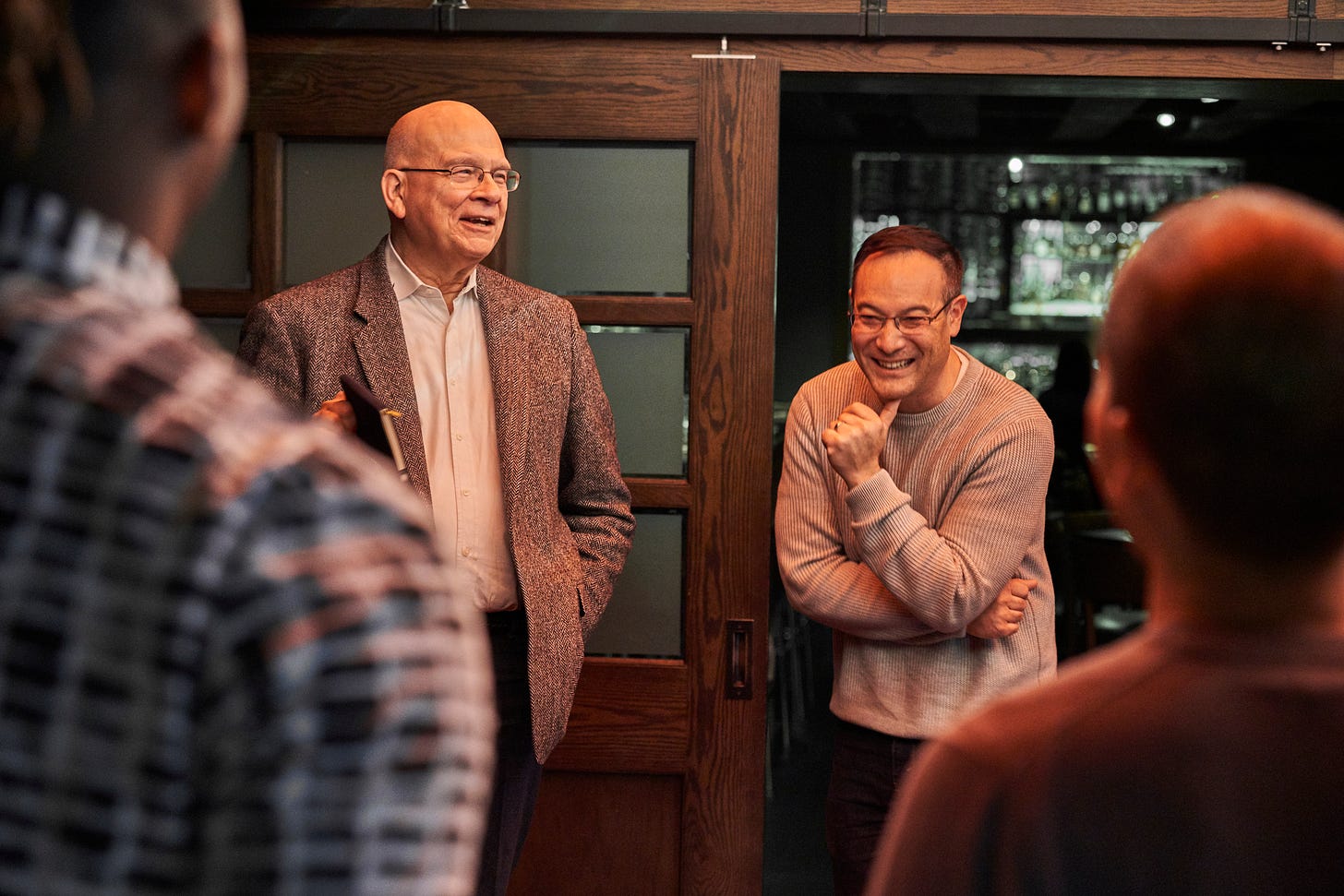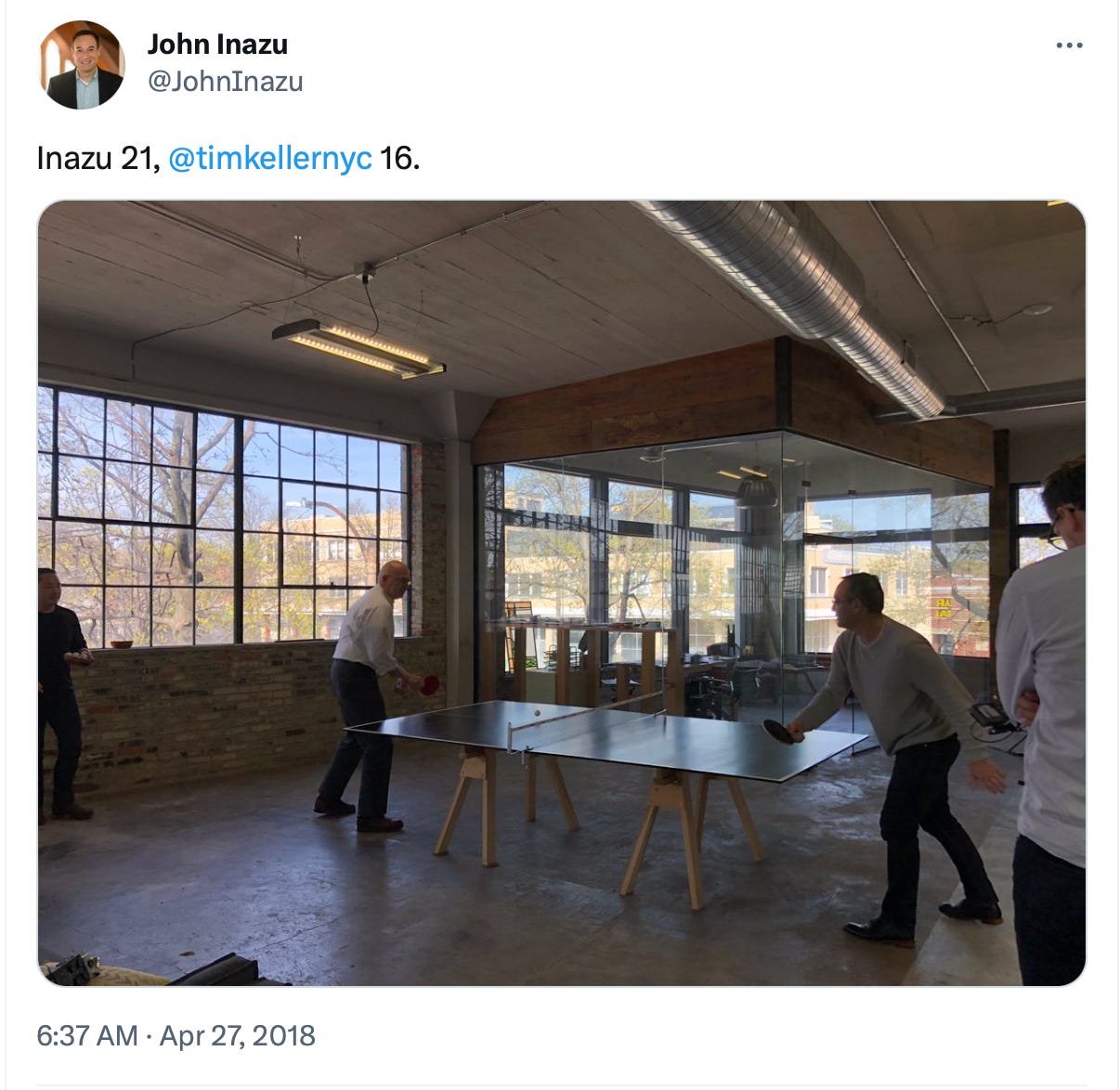Last week, the Presbyterian pastor and author Tim Keller passed away after a three-year struggle with pancreatic cancer. His death feels disorienting to me in a way that few other deaths have. He was not only a mentor and friend but also someone who profoundly influenced so many people I know.
The past few days have brought dozens of powerful and personal tributes. I don’t have much to add to the wisdom and appreciation voiced elsewhere, but I want to share three brief thoughts that echo and complement what others have said.
Tim the Intellectual
Tim was one of the smartest people I’ve known. He downplayed his intellect, but he had an insatiable appetite to learn and engage and a remarkable ability to simplify complex ideas. For the past nine years, we traded book recommendations, argued about Alasdair MacIntyre, Charles Taylor, and Abraham Kuyper, and debated whether “post-Christian” was a helpful adjective for contemporary American society. Tim also had an uncanny ability to see the details and the big picture at the same time.
I observed Tim’s intellect most acutely in our work together on our book, Uncommon Ground. I’ve had some good laughs reading the negative reviews on Amazon, most of which complain that “this not a Tim Keller book.” But of course, it is a Tim Keller book. His fingerprints are all over its words, themes, and people.
One of Tim’s many contributions to our book—and to his broader public engagement—was connecting cultural observations to the biblical hope that anchored his life. In his own chapter, he called Christians to focus on “the simple means of grace—preaching and teaching, prayer, worship, the sacraments, fellowship, and friendship—to fan the flames of gospel faith in the heart.”
Tim the Pastor
Tim listened to people in a way that I’m not sure I’ve seen in anyone else of his stature. He was a pastor who cared deeply about those around him. The first time I met him, he sought me out across a crowded room and spent an hour asking me about my life and family. When my dad became ill with cancer shortly after Tim and I began working on Uncommon Ground, Tim always asked about him during our update calls, sometimes saying “Kathy and I will pray for him.”
Tim pastored his own churches, most prominently Redeemer Presbyterian Church in New York City. I only heard him preach there once, but my life is daily enriched by friends whose lives were changed by their time at Redeemer—friends in their twenties and friends in their eighties; former students and former teachers; pastors, musicians, journalists, scientists, and business leaders. His influence, even in my limited orbit, is staggering.
Tim was also a pastor through his writing. Like many people I know, his books have helped me make sense of my own faith, especially Generous Justice and Walking With God Through Pain and Suffering.
Tim the Mentor
Tim went out of his way to encourage younger Christians working to find their public voice. Anyone who looks carefully at the tributes to him—those already voiced and those that will be made known in the years to come—will see the intentionality and faithfulness of his commitment to mentor and support those of us trying to find our way.
In a beautiful reflection this past weekend, the New Yorker’s Michael Luo described one of Tim’s final projects, a white paper he called “The Decline and Renewal of the American Church”:
It offers a wide-ranging set of prescriptions for what he viewed as the profound afflictions of the evangelical movement, including its anti-intellectualism, its problems with race, and the politicization of the church that has “turned off half the country.” The document is an exhaustive blueprint, but the question now is who will carry it out.
Michael poses the right question, but I think Tim has already answered it. Those who will carry out the work that he identified include the hundreds of lives he invested in personally and the thousands of others who found themselves nearer to God because of him. I count it as one of life’s privileges to be included among them.
One more thing: Tim was pretty good at ping pong. It’s possible that he let me win:








Thank you John for this moving tribute. My condolences on the loss of a friend, mentor and colleague. I became aware of Tim Keller through your writings. Another reason I am grateful that we connected.
John, thanks for sharing your reflections. I love that photo of you two at the top! I read this a few days ago and have kept thinking about your last point. It’s been so easy to despair or feel discouraged by the question “Who will carry on Tim’s work and embody the example he set?” You’ve challenged me to not only look around at the many who are already doing that work - which gives me hope and courage - but also to recognize that I’m called to be part of that work as well. Thank you for that!